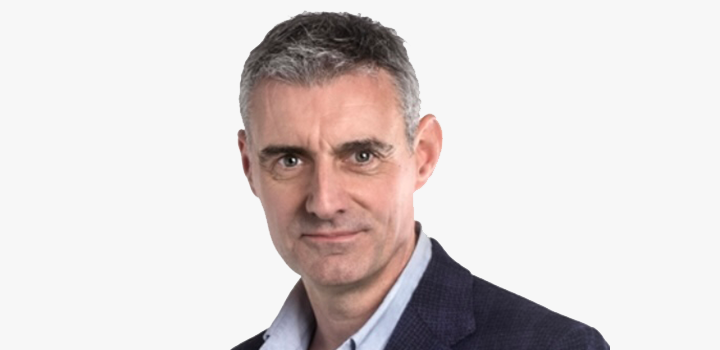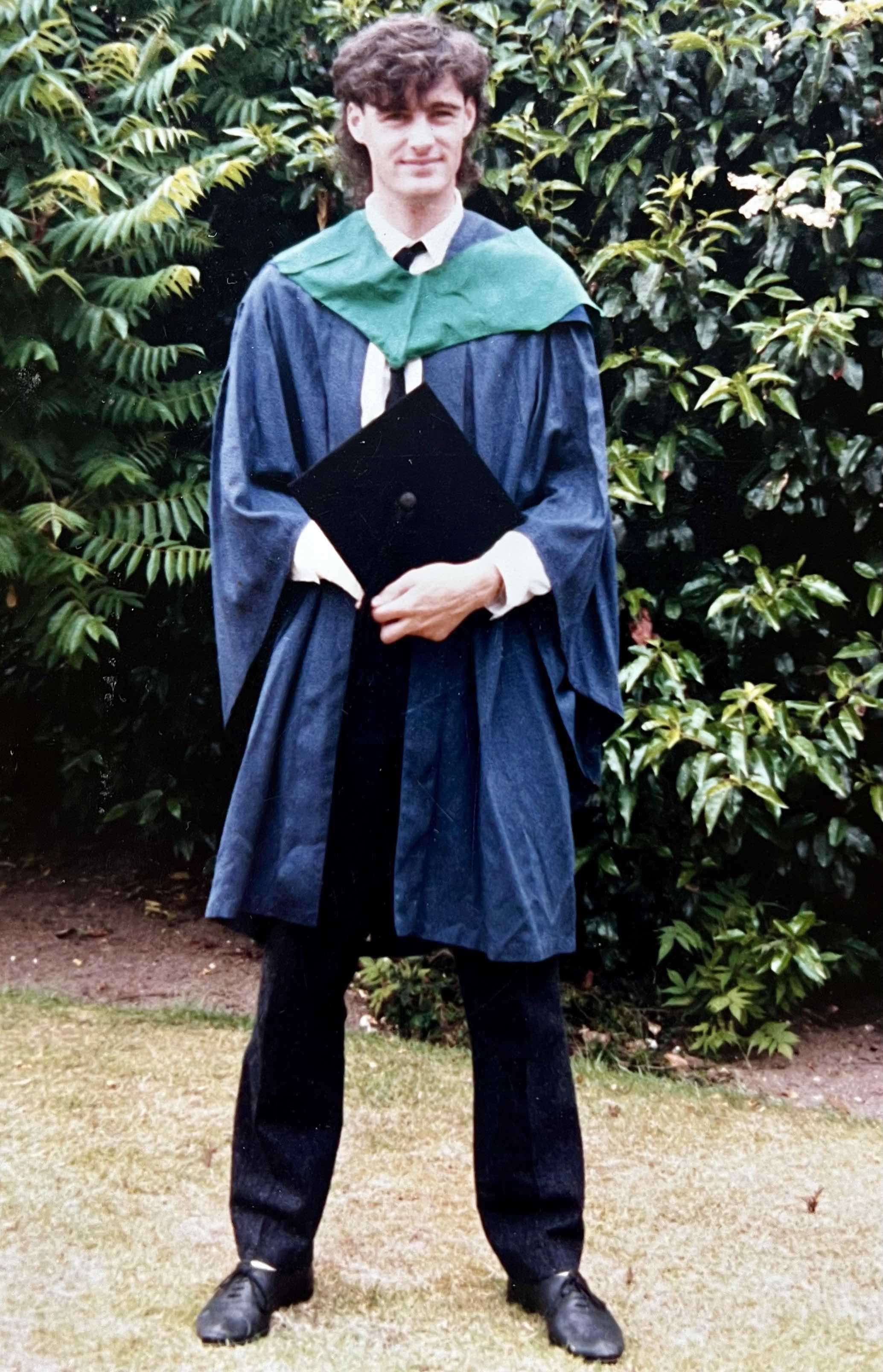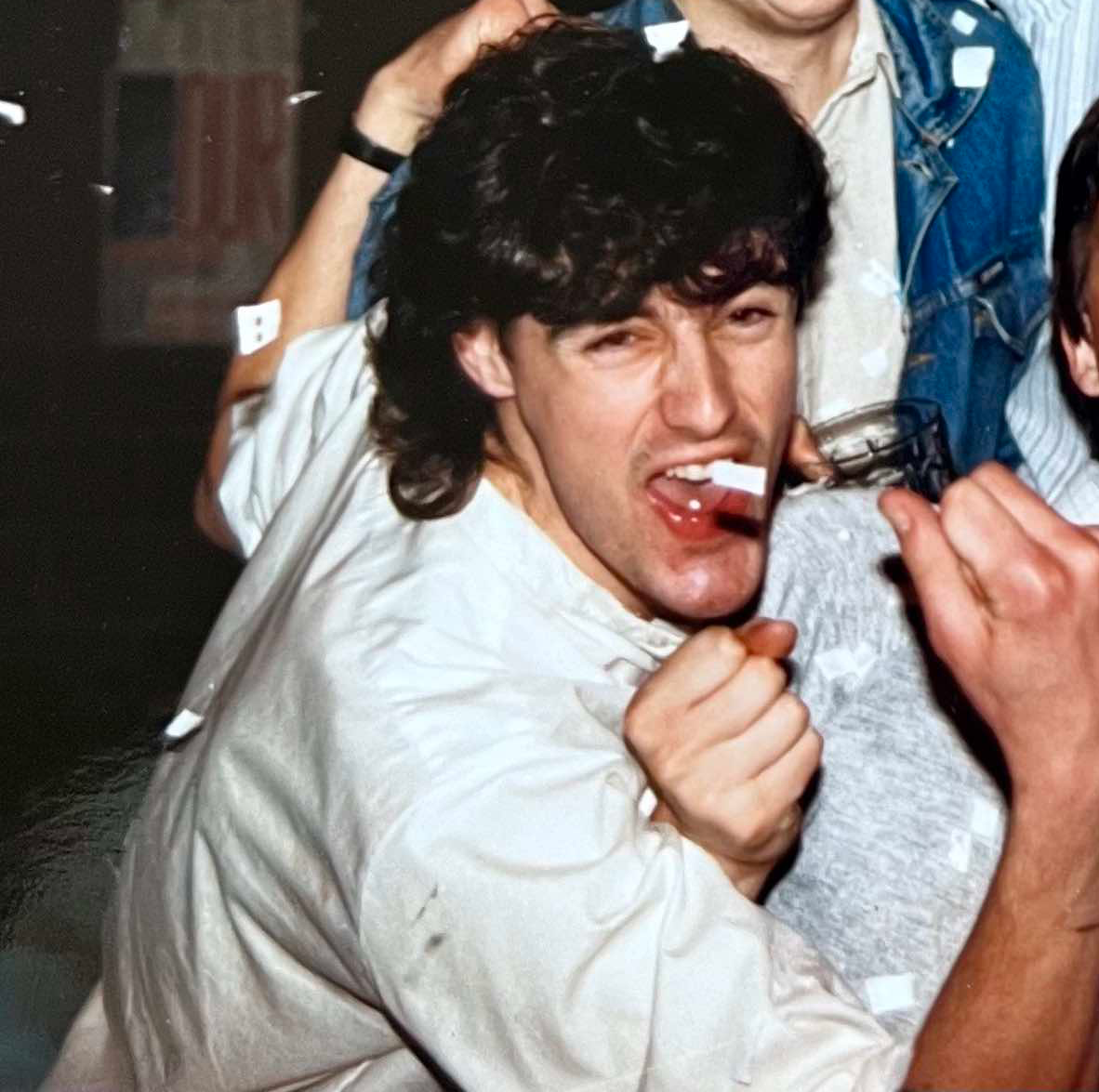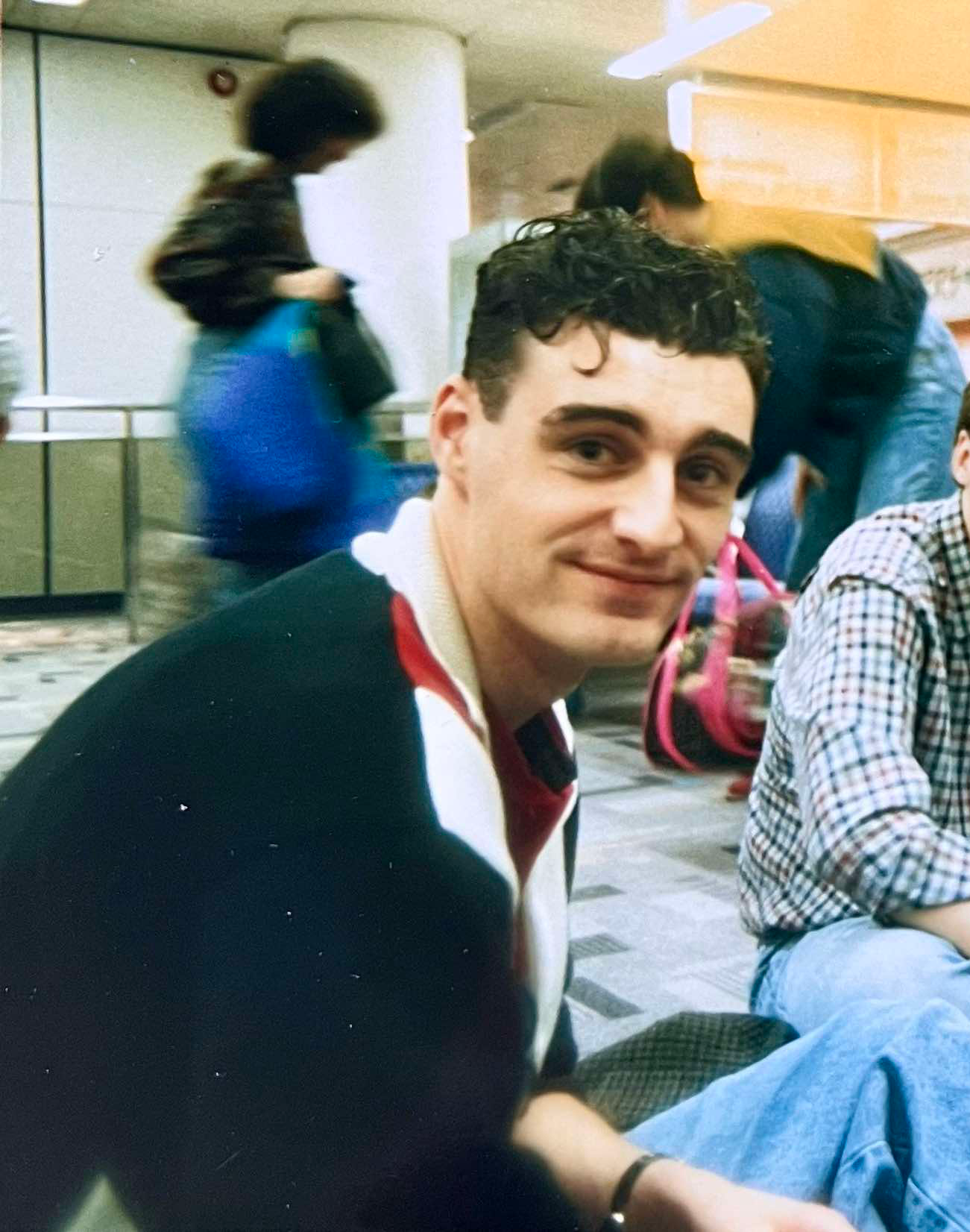UEA graduate Jim Prior’s career journey
By: Alumni Team

Jim Prior graduated from UEA with a BSc in Physics with Environmental Science. He went on to forge a career in marketing and branding working for apparel and sports brands and subsequently creative agencies. He has managed large teams and companies including heading up The Partners and Superunion.
Jim was kind enough to spend some time with us to talk about his memories of UEA, how his career has developed, and how he’s planning to be more active than ever in his retirement.
How did you come to study at UEA?
I’d grown up in the smallish town of Leighton Buzzard in Bedfordshire and most of my friends left school at 16, as had my parents and their families but I chose to continue into the sixth form. I took A-levels in physics, geography, maths, and computer science. When the question of university arose, I was in uncharted territory and, in the absence of any other advice, I picked a course that most closely matched my A-level subjects. The Physics with Environmental Science course was a great match. Although I’d never been to UEA or Norwich, my home town was on the far west border of the Anglia TV region so I’d grown up watching Anglia News, Look East and other programmes with a focus on Norfolk and Norwich and so it seemed somehow familiar and cemented that choice.
And how was your experience studying at UEA?
I remember joining UEA and, on one of my initial days, meeting neighbours studying subjects like philosophy and history of art. Until that point I hadn’t realised that those subjects even existed! From day one, my mind was blown wide open.
I quickly fell in love with Norwich. In my first year, I stayed in the residence within the former Horsham area. It was quite a distance from the university, and I still wonder how I managed to find my way into the campus in those early days, on my bike. I learnt quickly that there are more hills in Norwich than it gets credit for!
In the second year, I lived somewhere near the train station, although the exact location escapes me now. In my third year, I lived in the old Waveney Terrace, another great place to be. Each of the three years offered very distinct living experiences.
I may not have been the most diligent student the university has ever known but I lived my student life to the full, taking full advantage of the social opportunities on offer, loving gigs at the LCR, playing sport and making so many great friends. It was a great three years, for sure.

On graduation day
Could you describe how your career has developed?
It wasn't a deliberate plan; things just unfolded. I was reflecting on this earlier: I wonder to what extent my experience at UEA shaped the way my mind works. Studying a science subject while being surrounded by incredibly creative and talented individuals from various schools may have played a role. UEA's unique blend of creativity and scientific rigour might have influenced the direction my mind took in the years that followed.
After graduating in 1986, the logical step for me was to find a job in the oil industry. Given my background in physics, environmental science, geology, meteorology, and hydrology, it seemed like a fitting combination. At the time, there were only two other people in my entire year studying physics with environmental science so it was a rare combination. The advice was clear: go work in the oil industry where that knowledge will be used to full effect.
But, in my graduation year, 1986, OPEC flooded the market with an oversupply of oil and prices dropped to around $12 a barrel, their lowest for more than a decade. So, all of the oil companies were diligently showing up at the milk round interviews at the university but none of them were hiring and I had to think more broadly about what I might do instead. After a short time, I secured a position in a textile mill in Rochdale as a production planner, helping process orders from companies like Marks and Spencer and British Home Stores. The job involved managing the flow of fabric through the mill, dye houses, and back to the customer. The role leant into my analytical skills but also gave me technical fabric and dyeing knowledge and introduced me to creativity of the fashion world.
A couple of years later, I moved to London to work for Pepe Jeans, a fast-growing and dynamic company founded by three brothers in 1973. By the '80s, they had become a hugely successful brand. I was managing the production of jeans, T-shirts, sweatshirts, and shirts from factories worldwide, with a focus on Europe and Portugal. I spent a significant period working there, deepening my technical knowledge, working ever more closely with brilliant designers, and even picking up a vocabulary of quite industrial Portuguese!
After leaving Pepe Jeans, I co-founded my own apparel company, Duck and Cover, when I was around 25 or 26 years old. Running my own business provided an incredible learning experience in a whole bunch of areas one might never encounter on a more linear career path. I learned about accounting and cash-flow, sales and customer service, the best way to pack and tape boxes and all the intricacies of managing a business, as well as continuing my journey into design and creativity. We built a successful brand, and after another few years I moved on to work for Levi Strauss.
At Levi Strauss, I was the head of product for the UK, focusing on product range management. Levi’s was experiencing a highly successful growth phase during that period. My role was to determine the product range and decide which products to prioritise. In the fast-paced fashion industry, where trends change frequently, it was a constant state of flux. During my time there, Levi's as a brand played a significant role in shaping culture globally. Levi's TV ads were breaking new bands and contributing to cultural shifts. It was a dynamic and creative environment, and the company's success allowed for a lot of freedom and creativity. This marked a shift for me, moving from a focus on products to a stronger emphasis on brand development.
After Levi's, I joined Converse, the American sportswear company and another great brand, as the Head of Product and Marketing for Europe, Middle East and Africa. During my time at Converse I found my role shifting more towards managing teams and the P&L than on the creativity and ideas side that I loved the most. I knew there would be plenty of time to get back to the senior leadership roles later in my career, so this led me to make a shift back to a more hands-on creative role in 2001.
I moved into the agency world, which was filled with creative energy during the first big wave of the digital era. I joined a successful brand consulting and design business called The Partners - a small company that had recently been acquired by WPP, the world’s largest advertising and marketing services company. After a couple of years at The Partners, I was given the opportunity to lead the company, taking over from its founders. We worked with a diverse range of large global brands in both the consumer and business sectors, such as Ford, Unilever, Aston Martin, Bank of America, HSBC, Vodafone, and Telefonica. My focus was on consulting with senior leadership teams, helping them define the principles guiding their businesses, from market strategy to product design, brand identity and key messaging, always with creativity and imagination at its core.
Over the next fifteen years under my leadership the company grew and expanded internationally. Inside of the parent company, WPP, I took on the leadership of a number of other group companies, all of them in them in the brand consulting, design and communication space. Then, in 2017, I merged five of those companies together to create Superunion, a global leader in its field with around 1000 people across 27 countries worldwide and a creative reputation that was second to none. With the company set up for continued success and a strong leadership team in place, I took the decision to retire in the summer of 2023.

Celebrating final exams
And how do you look back on your career and your ethos?
My journey has been dynamic and varied, moving from roles in product management and design within the fashion sector to brand consulting and leadership positions. My work with clients over the last twenty years or so has been similarly dynamic and varied, with no two assignments ever being quite the same. I’ve always relished that diversity and lack of predictability to what might happen next.
I’m passionate about creativity, more specifically creative ideas, concepts and principles, and how they can bring about positive and meaningful change in the world. I’ve never been interested or satisfied with mediocre work or run-of-the-mill solutions. I’ve always sought to rethink how businesses operate, find better ways to serve societal needs, and adapt to changes in consumer and business landscapes. The ability to then execute and deliver against these creative ideas is crucial, as creative concepts are only valuable when manifested in tangible forms.
I believe in the close union of great craft and impactful ideas. The world today demands creative thinking more than ever, especially with the increasing role of AI in handling manual tasks. Human skills that involve thinking differently and making the leaps of imagination that logic ignores will be in high demand. The ability to bring forth creative, innovative ideas is a key aspect of remaining valuable in an evolving landscape.
I’d argue, perhaps counter-intuitively for some, that logic and analytical skill is the perfect bedfellow for creativity. Logic helps to identify everything that is known. But when you have exhausted all logical possibilities and your problem remains unsolved, that’s when creativity and imagination need to come to the fore. In my opinion, the best creativity comes when allied to logic and sound rational sense. Finding the balance and perfect interplay between those concepts is how most of my career has been spent.
What advice do you have for those joining the brand world?
Diversity of experience is crucial. Being a generalist is often more valuable than being a deep subject area expert. Working with various sectors and disciplines gives you the opportunity to apply learnings from different domains where such knowledge might not otherwise get shared.
It's crucial to know what you think about what's happening in the world, companies, products, and various aspects. Having a strong point of view and being able to voice your opinions confidently is essential in the creative industry. In my field, thoughts in my head and the words from my mouth and my most valuable product, so confidence in expressing that becomes crucial. Trying out different things, being a generalist, and having diverse experiences contribute to a more holistic and innovative approach.

At the student union bar
What are your plans for the future?
I hope to share the insights and experiences I have gained with others. I don't want to impose my worldview on others, but if people find value in what I have to offer, I'm more than willing to share it. Initially, I imagined my retirement would be about doing nothing, but I already find myself engaged in numerous activities. I’m in the fortunate position of being able to choose to do things I love, so I’m engaging in projects in areas such as music, sport and technology right now. I'm excited about exploring different avenues and doing things that make a positive impact on the world.
Those of a dystopian mindset sometimes criticise the field of brands and marketing as a kind of evil for selling things to people that they don't want, or as trivial and exploitative. However, it plays a crucial role in shaping the world. Understanding the real needs that people have, then shaping the products, services and experiences that organisations provide so that they best match that, is a win for everyone. The more I can do to bridge the gaps between the two, the better. I'm looking to contribute to meaningful initiatives and, I hope, to do some cool things along the way.